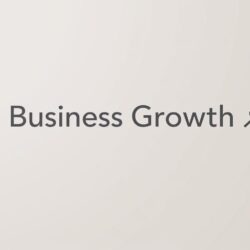Introduction to ESG Reporting Software
In today’s corporate landscape, Environmental, Social, and Governance (ESG) performance has become a key indicator of long-term business success. Investors, regulators, and consumers now demand transparency on how organizations impact society and the planet. To meet these growing expectations, companies are turning to ESG reporting software—advanced digital platforms that automate data collection, analysis, and disclosure. Finding the best ESG reporting software can make a significant difference in ensuring compliance, enhancing brand reputation, and achieving sustainability goals effectively.
What Is ESG Reporting Software?
ESG reporting software is a digital tool designed to help organizations track, measure, and report their environmental, social, and governance performance. It simplifies the process of gathering data from multiple sources, aligning it with recognized frameworks such as GRI, SASB, TCFD, or CDP, and generating standardized reports for stakeholders. The best ESG reporting software goes beyond compliance—it offers predictive analytics, AI-driven insights, and visualization tools to support smarter decision-making across all levels of business operations.
Why ESG Reporting Matters for Modern Businesses
The importance of ESG reporting has surged in recent years as sustainability has become integral to business strategy. Investors use ESG data to assess risks and opportunities, while regulators are enforcing stricter disclosure mandates. Companies that prioritize ESG performance are more likely to attract responsible investors, retain top talent, and build trust with consumers. Moreover, accurate ESG reporting can identify inefficiencies in energy use, waste management, or labor practices, ultimately leading to cost savings and improved operational performance.
Key Features to Look for in the Best ESG Reporting Software
Choosing the right ESG reporting software requires evaluating features that align with your business needs and sustainability goals. The best solutions include the following capabilities:
Automated Data Collection and Integration
Manual data collection is time-consuming and prone to errors. Top ESG software platforms integrate with existing business systems—such as ERP, HR, and supply chain tools—to automatically gather data from multiple departments, ensuring accuracy and real-time updates.
Customizable Reporting Frameworks
Different organizations follow different reporting standards. The best ESG software allows customization based on frameworks like GRI, SASB, TCFD, and CSRD, ensuring global compliance while maintaining flexibility.
AI and Analytics for Predictive Insights
Advanced ESG software uses artificial intelligence and machine learning to detect patterns, predict risks, and provide actionable insights. This helps businesses anticipate sustainability challenges and opportunities rather than simply react to them.
Visualization and Dashboard Tools
Interactive dashboards and visual analytics simplify complex data, allowing executives and stakeholders to understand ESG performance at a glance. Graphs, charts, and trend lines make it easier to communicate progress and areas for improvement.
Audit and Compliance Management
The best ESG reporting software ensures transparency by maintaining audit trails, data verification tools, and compliance tracking to meet international regulations and standards.
Collaboration and Workflow Automation
Since ESG data often involves multiple departments and stakeholders, collaboration tools are essential. Top platforms include automated workflows, task assignments, and shared dashboards to enhance teamwork and accountability.
Top ESG Reporting Software Solutions in 2025
With so many ESG tools in the market, it’s essential to identify platforms that stand out in terms of innovation, functionality, and user experience. Here are some of the best ESG reporting software solutions to consider in 2025:
1. Workiva
Workiva is a leading ESG reporting platform trusted by global enterprises. It simplifies ESG data collection, connects financial and non-financial reporting, and aligns with multiple global frameworks. Its cloud-based system ensures secure collaboration and real-time updates, making it ideal for large corporations with complex reporting needs.
2. Diligent ESG
Diligent offers a comprehensive ESG solution that combines analytics, risk assessment, and reporting. It helps organizations benchmark their ESG performance, track sustainability KPIs, and produce detailed reports that comply with evolving regulatory standards. Its intuitive interface makes it easy to navigate for teams at any expertise level.
3. SpheraCloud ESG Reporting
SpheraCloud is recognized for its robust environmental data management and risk analysis capabilities. It enables organizations to capture ESG data across the value chain and transform it into actionable intelligence for sustainability initiatives. Sphera’s integrated platform supports compliance with GRI, CDP, and other global standards.
4. IBM Envizi ESG Suite
IBM Envizi leverages AI and automation to streamline ESG data management. The platform allows companies to track carbon emissions, social metrics, and governance indicators through smart analytics. Envizi’s strength lies in its ability to connect ESG data directly with corporate performance and business strategy.
5. Persefoni
Persefoni is one of the most popular ESG carbon accounting platforms, providing end-to-end solutions for emissions tracking, sustainability reporting, and investor disclosure. Its advanced carbon footprint modeling and automated compliance reporting make it a top choice for climate-conscious organizations.
6. Novisto
Novisto focuses on simplifying ESG data management for mid to large enterprises. It offers strong integration with financial systems, real-time dashboards, and automated disclosures. Novisto’s modern interface and scalability make it ideal for companies that need flexibility and customization.
How to Choose the Best ESG Reporting Software for Your Business
Selecting the right ESG software depends on your organization’s size, industry, and reporting requirements. Here are some practical steps to guide your decision:
Identify Your ESG Goals
Determine what you want to achieve—whether it’s improving carbon reporting, enhancing social responsibility metrics, or aligning with investor expectations.
Assess Integration Capabilities
Choose software that easily integrates with your existing IT ecosystem, including ERP, CRM, and HR systems, for seamless data flow.
Evaluate Usability and Training Support
A user-friendly interface and comprehensive support resources ensure that your team can adapt quickly without disrupting workflows.
Check for Regulatory Compliance
Ensure the software supports the frameworks and standards relevant to your region and industry to avoid compliance risks.
Compare Costs and ROI
While pricing varies, focus on long-term value. The best ESG reporting software provides measurable benefits in efficiency, compliance, and reputation.
Benefits of Using ESG Reporting Software
Implementing a powerful ESG reporting tool brings several advantages:
-
Enhanced Transparency: Build trust with stakeholders through accurate, auditable data.
-
Improved Efficiency: Save time by automating manual reporting tasks.
-
Regulatory Compliance: Stay up-to-date with evolving ESG disclosure laws.
-
Data-Driven Decisions: Gain insights to reduce risks and identify opportunities for sustainability improvements.
-
Increased Investor Confidence: Attract responsible investors who prioritize sustainability performance.
The Future of ESG Reporting Software
As technology advances, ESG reporting will continue to evolve. Artificial intelligence, blockchain, and IoT are set to revolutionize how companies collect and verify ESG data. Real-time sustainability dashboards, predictive analytics, and integrated climate risk modeling will become standard features. The best ESG reporting software of the future will not only track data but also guide strategic decisions to create lasting positive impact for businesses and society.
Conclusion: Embrace Digital Transformation for a Sustainable Future
In a world where sustainability defines success, the best ESG reporting software serves as the foundation for responsible growth. It empowers organizations to collect accurate data, ensure compliance, and communicate their impact transparently. Whether you are a multinational enterprise or a growing company, investing in ESG technology is no longer optional—it’s a necessity. By adopting the right ESG reporting solution, businesses can drive measurable change, build stakeholder trust, and lead the way toward a more sustainable and accountable future.



